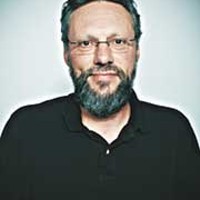By all accounts, we live in a post-privacy world. Most people today are either walking around with smartphone cameras shooting videos of their naughty bits or having loud phone conversations about their oozing fissures. (To be fair, some do both.)
Every purchase we make, text we send, errand we run and search we enter is being stored in somebody’s database. A drone is probably watching you read this right now (so please move your big head out of the way so it can read along).
Many cities, meanwhile, record our traffic violations and mail us tickets. Spycams are mounted on every computer, shop door, elevator and telephone pole. Our nation’s grandparents are posting embarrassing comments on Facebook at an unprecedented clip. Even our password-protected cloud porn selfies are not safe from the prurient perverts of 4chan and Reddit. Heck, the NSA can’t even keep its own data in its pants.
It’s been 15 invasive years since Sun Microsystems’ CEO, Scott McNealy, famously said, “You have zero privacy. Get over it.” And most people seem to have not only gotten over it but are eager to traipse around naked in the wilderness on reality TV. About the only frontier left is Scentbook, an app that will probably soon offer an interactive “Smell My Finger” button.
Of course, these intrusions sometimes have a positive impact on society, as happened when the Ray Rice elevator battering set off an important national discussion about domestic violence. But for every moment of enlightenment, there seems to be a thousand cringe-inducing TMZ or HuffPo photos, which get shamelessly legitimized by the New York Times or the nightly news.
And yet, each new invasion of our privacy only makes what’s left of it more precious. In fact, if privacy really were a thing of the past, we probably wouldn’t be so obsessed with the foibles of others.
I suspect that, despite our outward over-sharing of unimportant nonsense online, most of us still find it thrilling to keep some secrets. Life is still an exhilarating struggle to keep secret our sex, drug and doughnut-consumption adventures — first from our parents, then from our children and eventually from nobody, which probably explains why our nation’s grandparents have taken over Facebook: They have been repressing everything their whole lives, and now it’s time to let their freak pubes fly.
Each individual’s need for privacy may be generationally or culturally influenced. Some of us have never really felt true privacy. For example, every good Catholic knows God is watching you when you masturbate. And young adults today can’t even remember a time before sexting.
I was reminded of all of this recently when I tried to have a private, personal phone conversation in public. I don’t like people listening to me talk on the phone, no matter how banal the conversation. In this case, I resorted to comical contortions to get to a spot where I felt like I could speak without being overheard, when I suddenly realized nobody could overhear because they were all too busy over-sharing their own tedious minutiae to listen to me. I could talk as loudly as I wanted and still have complete privacy.
But perhaps, as with libertarianism and the Atkins diet, a correction is underway. One encouraging sign is that young people are turning away from Facebook in droves. According to Ad Week, 25 percent of people 19 and younger have abandoned Facebook in favor of new services like Snapchat, Secret and Whisper, which purport to allow them to post anonymously or temporarily. Snapchat has famously had its own security breaches, but at least youngsters are showing awareness of what privacy is, which seems like a step in the right direction.
We live in a time when it is possible to completely avoid our own thoughts in lieu of being entertained 24 hours per day, which seems like another oppressive form of privacy invasion. Sometimes just sitting quietly or daydreaming feels a little thrilling, partly because it is an opportunity to luxuriate in a completely private moment.
So maybe the iCloud has a silver lining. By creating our surveillance society, maybe Steve Jobs and Keith Alexander and Perez Hilton and Rupert Murdoch and Mark Zuckerberg have condensed our private moments into something truly valuable and worth celebrating. Could it be that privacy is becoming fashionable again? If so, somebody should totally tattoo that on their privates and Instagram it.






